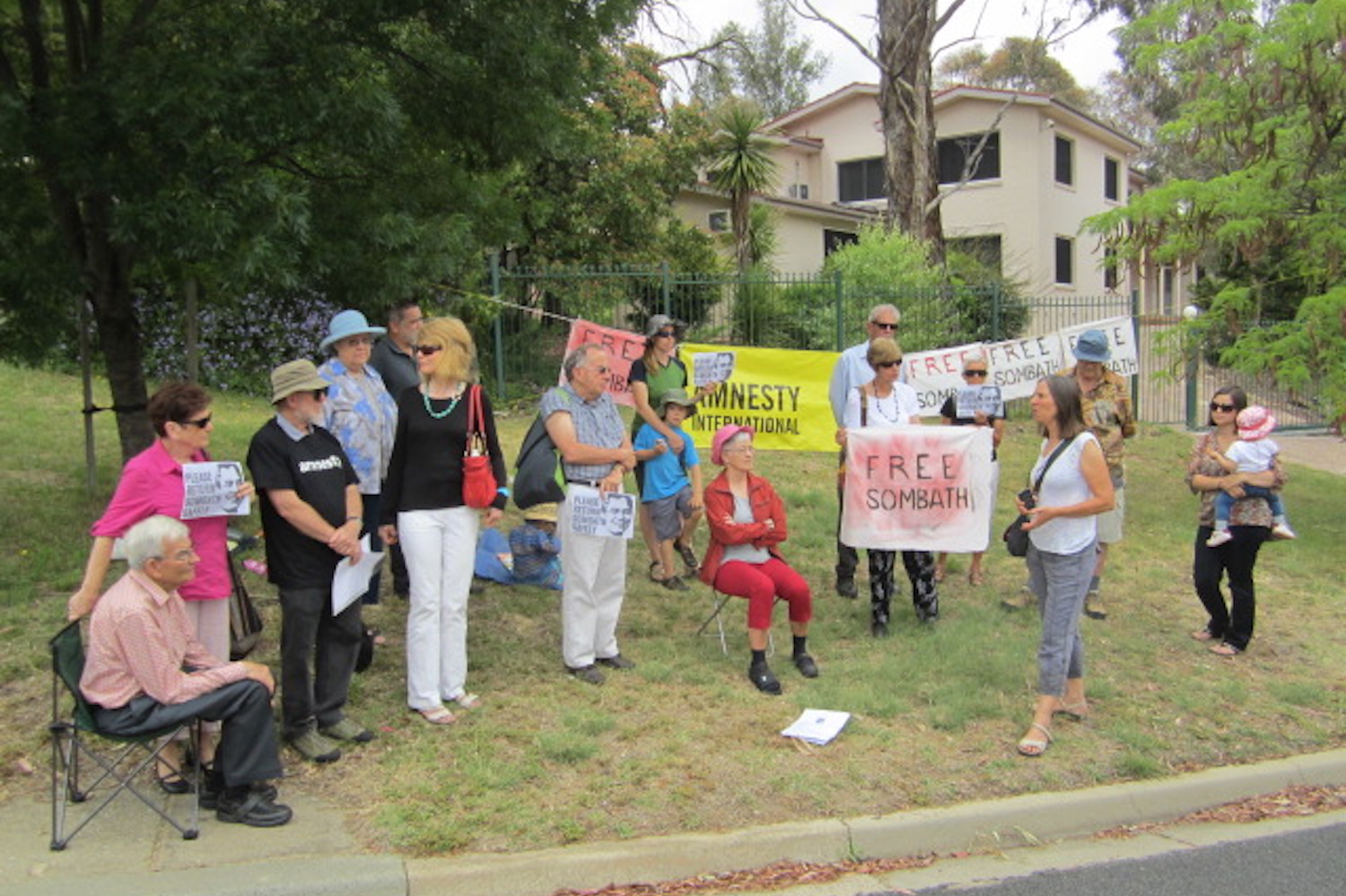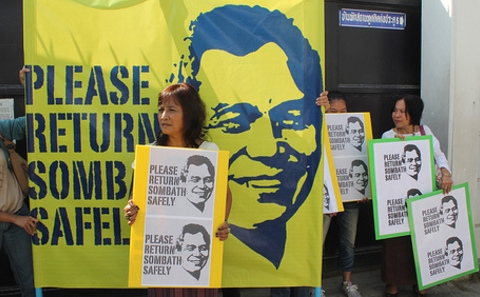Human Rights Watch: 12 August 2019
The Lao government has never disclosed the fate or whereabouts of a prominent civil society leader, Sombath Somphone, who was forcibly disappeared in the capital, Vientiane, in December 2012.
Dialogue Should Address Enforced Disappearances, Free Speech
The Australian government should press the Lao government to take serious steps to remedy its poor human rights record at the 6th Australia-Laos human rights dialogue on August 12, 2019, in Canberra, Human Rights Watch said today.
In a June submission, Human Rights Watch urged the Australian government to use the dialogue to focus on enforced disappearances of Lao and Thai nationals, and to press the Lao government to end its systematic restrictions on the rights to freedom of speech, association, and assembly. Other key human rights concerns include abusive drug detention centers, repression of minority religious groups, and violence against women and girls.
“Australia is one of the few countries that has a human rights dialogue with Laos and so should make the most of this opportunity to press for change,” said Phil Robertson, deputy Asia director at Human Rights Watch. “Laos has a horrific human rights record, which is often overlooked.”
Laos is a single-party state that bans opposition political parties and sharply curtails independent groups. The government strictly monitors and controls all television, radio, and publications. It has taken further legislative measures to strengthen censorship and government control.
The Lao government has never disclosed the fate or whereabouts of a prominent civil society leader, Sombath Somphone, who was forcibly disappeared in the capital, Vientiane, in December 2012.
Australia should also press the government to investigate the disappearance of three Thai political activists who were abducted in Vientiane in December 2018. DNA samples from mutilated bodies found in the Mekong River matched two of the missing activists, Kraidej Luelert and Chatchan Buphawan, raising grave concerns for the third activist, Surachai Danwattananusorn, who remains missing. The two bodies had been disemboweled and stuffed with concrete.
“Australia should break the silence that surrounds Laos’ suppression of fundamental human rights and play a key role in encouraging international concern and pressure for reform,” Robertson said.
Related Content: Submission to Australia Laos Human Right Dialogue, June 2019


 Regrettably, an opportunity to advance human rights in Laos has instead resulted in yet another aid project.
Regrettably, an opportunity to advance human rights in Laos has instead resulted in yet another aid project.






 Australia continues to raise concern with Laos about the disappearance of Mr Sombath Somphone, and the case continues to figure prominently in bilateral discussions with Laos.
Australia continues to raise concern with Laos about the disappearance of Mr Sombath Somphone, and the case continues to figure prominently in bilateral discussions with Laos.
